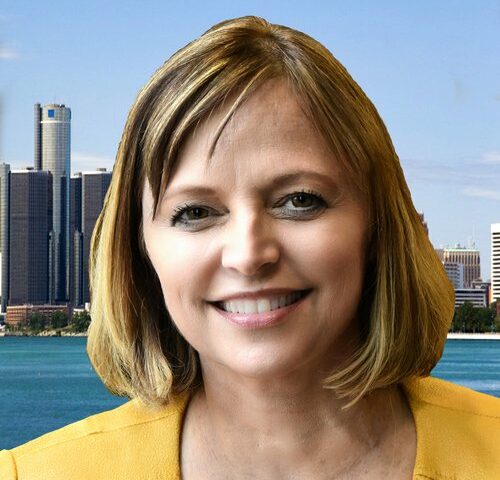Implementing Sustainability Initiatives is Crucial in Today’s Business World

CONNIE LILLEY IS THE EXECUTIVE DIRECTOR OF DETROIT 2030 DISTRICT You may be missing out on growth opportunities if you’re a business that has yet to jump on the sustainability train. I’m sure you’ve heard the word “sustainability” before, but what exactly does that mean to your business? That’s the question all individual companies need to ask. PEOPLE, PLANET, AND PROFIT The well-known triple-bottom-line theory is just one of many theories floating around today. But, the most basic question that all businesses need to ask is: How is my company benefiting People, Planet, and Profit? No matter what program, theory, or process a business intends to follow, there’s one sure thing – getting started can be the hardest part. But, if you are a company that is just getting started, it’s easier than ever to create a sustainability plan for a business. Companies no longer have to reinvent the wheel when writing a sustainability plan. Other businesses have created many programs and published sustainability plans to help lead the way and share best practices. While sustainability means different things to different organizations, there’s no denying that implementing sustainability initiatives can help a company’s growth in more ways than just environmental stewardship. While that is the main focus of sustainability, let’s not forget about the economic benefits as well. A company that reduces utility costs can put that savings into hiring more employees, spurring economic development. Sustainability plans should be a part of any business operational plans. Here are some of the benefits of getting started. SAVE MONEY ● Reduce the cost of transportation to and from landfills ● Reduce your operating expenses when you use less energy and water ● Reduce your stormwater runoff fees Reduce your company’s carbon footprint ● Lowering greenhouse gas emissions by reducing energy and water consumption ● Installing gardens or green roofs to manage stormwater runoff ● Reduce transportation emissions to and from landfills and local traffic Increase your revenue: ● Increase positive public relations and marketing by promoting your company’s sustainability efforts ● Increase sales by offering sustainable products to your customers ● Create a healthy building to attract quality tenants to increase rent ● Provide a healthy environment for employees and thereby reduce sick days The steps described above are not always easy to implement. If you own or manage a building, creating a high-performance building takes focus and commitment. Organizations such as 2030 Districts are forming across North America to assist facility managers and owners with tasks such as tracking and managing water and energy consumption, offering educational opportunities, sharing best practices, and more. Most 2030 District programs are free or cost-effective compared to hiring a consultant or company to assist. For more information and to find a 2030 District in your city, visit www.2030districts.org. Be sure to subscribe to our newsletter for regular updates on sustainable business practices in and around Detroit.
Detroit 2030 District is Promoting Carbon-Free, High-Performance Built Environments

SBN Detroit interviews the executive director of the Detroit 2030 District, Connie Lilley. Connie has been working within the commercial built environment for over 25 years, with the last 16 years focusing on energy efficiency and sustainability. She has served on many industry trade groups, including past vice chair for the U.S. Green Building Council, Detroit Regional Chapter, where she implemented the popular My Green School Art Contest that runs annually throughout Michigan. Connie has received two awards from the National Women in Construction Detroit Chapter for being a green/sustainable leader. She has also volunteered for BOMA, IFMA, and the City of Detroit Green Task Force. Connie is a LEED AP, O & M (accredited professional, operations and maintenance) and has an MBA focusing on corporate sustainability. Q: Please tell me about Detroit 2030 District and your role. A: I am the executive director of the Detroit 2030 District, which is a nonprofit working with building owners and managers to help them reduce energy and water consumption and transportation emissions to and from their buildings. The movement promotes a carbon-free future, high-performance buildings, economic development, and environmental justice. The District is one of twenty-four 2030 Districts across North America, with three in Michigan – Grand Rapids, Detroit, and Ann Arbor. The Detroit 2030 District Is the fourth-largest District in the network, with over 51 million square feet committed. The District has 40 local nonprofit partners and 42 local businesses that support the program. The Detroit District was launched in 2017 with the support of the Michigan Department, of Environment, Great Lakes, and Energy. Q: Please elaborate on the work you are currently doing. A: We offer our building members resources and a robust calendar of educational opportunities to learn how to reduce energy and water consumption, transportation emissions, and operating expenses. We have three best practice groups, including houses of worship, venues, and museums, and multifamily. We assist our members in many ways, including helping them start an Energy Star Portfolio Manager Account to measure and track energy and water consumption and work towards reducing them. We also run many pilots on new technologies at member buildings, allowing our members to see if the technology is suitable for their buildings. We run webinars on relevant topics, including funding mechanisms, grant opportunities, renewables, green infrastructure, solar, etc. Q: You were instrumental in bringing a District to Detroit in 2017. What prompted this and what was the process of bringing this to Detroit? A: My industry colleague, Peggy Matta, and I talked for many years about the benefits of this type of program. We knew that Detroit had many aging buildings that would need renovation in the coming years. If Detroit were to make a comeback, healthy buildings and communities would be significant to the process and help to spur economic development. We both know it is best to consider energy efficiencies and other high-performance building techniques before a building is built or renovated. We felt we would be more successful in helping to rebuild Detroit if we educated many building owners at a time instead of one at a time. We had heard of the 2030 District Network and how it works. We thought it would be great to bring a District to Detroit. After working for several years with many volunteers and an exploratory committee, we became an Emerging 2030 District. After a lot of groundwork, and collaboration with municipalities, businesses, and nonprofits, our movement began to grow and finally became a full District in 2017. Peggy became the founder and Chair of the organization and is still very involved. Q: Are you pleased with the progress and impact you’ve been able to make? A: While there have been many ups and downs, including the pandemic, flooding, stormwater issues, and the political environment, we have made it through. Never in my wildest dreams did I think we would have 51 million square feet signed into our program. When we were first touting the benefits of reducing carbon emissions from the built environment, the conversation about the impact of climate change on the built environment was challenging. Many people didn’t understand the economic and health benefits of reducing a building’s carbon footprint. Since our inception, we have helped hundreds of building owners and facility managers understand how to measure, track and work to reduce energy and water consumption. Many building owners don’t have an energy manager or a sustainability professional who understands how to combat issues with climate challenges. We have implemented several successful programs, including a Museum Best Practice Group, which has gone national across all 2030 Districts. Our unique House of Worship Best Practices Group includes over 20 local congregations. This program partners with 15 different local businesses and the EPA for Congregations and has crafted a collaboration opportunity for all denominations. One of the District’s strengths is bringing together groups of people from different entities and organizations to collaborate on strategies. Our program provides various events and workshops that bring people together that may not have had the opportunity to meet before. Facility managers across the city can now collaborate and work together instead of in a silo. Sharing best practices reduces the time and effort a building owner/manager must put into understanding climate challenges and overcoming them. We launched the Detroit Energy Challenge along with the City of Detroit and the Michigan Battle of the Buildings. Our first awards breakfast took place this June. We will also be adding awards in the future for internal water consumption reduction. This competition is an excellent opportunity for us to recognize facility managers who have done a fantastic job reducing energy consumption and carbon footprint Our organization also supports a future benchmarking ordinance for the City of Detroit. We are hopeful to see this pass soon as it will allow building owners to benchmark their buildings. We have made great strides and relationships with the local utilities, including DTE and Detroit thermal. We work to understand their goals and missions


